Late motherhood is becoming increasingly popular in our society nowadays. Today, women prefer to focus on their professional career first, and they don't decide to have children until they achieve financial stability.
The main drawback of delaying motherhood until age 40 is that fertility diminishes with age. Unfortunately, the age group of 20 to 30 is the ideal have the greatest chance of pregnancy. But this is not in line with the personal circumstances of each woman to start a family.
The good news for these women is that they can have children in their 40s thanks to the wide range of reproductive technologies available today.
Provided below is an index with the 7 points we are going to expand on in this article.
- 1.
- 2.
- 2.1.
- 2.2.
- 2.3.
- 3.
- 4.
- 4.1.
- 4.2.
- 4.3.
- 4.4.
- 4.5.
- 4.6.
- 4.7.
- 5.
- 6.
- 7.
Best age to have a baby
In females, fertility starts with the first menstrual period. Approximately after one year with regular periods, approximately at age 16, women are biologically ready to get pregnant.
This fertility and subsequent great chance of pregnancy remains consistently high until age 27, when fertility is mildly affected. But it is not until the woman is 35 years old when her egg count will experience a dramatical decrease.
In spite of that, and especially nowadays, women are unlikely ready to become mothers when the biological clock indicates they should. While expanding your professional carrier, plus achieving financial and emotional stability, as well as finding a parter who wants to have children as well, it is likely that you are in your 30s or early 40s when you finally have the ideal situation to have a baby.
This change in today's society has lead to an increasingly common trend of delaying motherhood in most women, who decide to have their first child at 40.
In many cases, these late pregnancies are achieved thanks to the use of a fertility treatment, given that the chances of getting pregnant naturally in your 40s are as low as 5 percent approximately. After age 45, getting pregnant with your own eggs is almost impossible.
Your reproductive options
During your 40s, it is only normal that your ovarian reserve is lower than in previous years. In other words, the amount of eggs remaining in your ovaries is decreasing and, what's more, egg quality is poorer due to aging ovaries.
To all this must be added the fact that poor egg quality translates into a greater number of genetic alterations and aneuploidies due to advanced maternal age, which increases the risk of miscarriage or, what is worse, the birth of an ill child.
In order to avoid this and have a healthy child in case you are in your 40s, assisted reproduction has the advanced techniques to help uou: fertility preservation, IVF with preimplantation genetic screening and IVF with egg donation.
If you want to learn more about each of the fertility treatments, we recommend you visit the following article: Assisted reproduction techniques: differences and complexities.
Fertility preservation
Thanks to a technique called egg vitrification or egg cryopreservation, you can freeze your eggs and store them until you decide to have children. The main advantage is that egg quality remains almost the same.
After undergoing controlled ovarian stimulation, it is possible for women to produce multiple eggs in order to freeze them for later use. Then, they are stored indefinitely without compromising their quality.
Additionally, the survival rate of post-thaw frozen eggs is above 90%.
Fertility preservation is the simplest and most adequate technique for women who want to have a biological child after age 40.
Experts recommend that all women who wish to delay motherhood cryopreserve their eggs before age 30, when their ovarian reserve is optimal.
For more information on this topic please read: Fertility Preservation – Cost & Options for Retaining Your Fertility.
IVF with PGD
In the case of women who haven't frozen their eggs at a younger age and are now 40 or more, the good news is that they can still have a baby via In Vitro Fertilization (IVF).
For IVF to be possible, your ovarian reserve must still be good. This means the ability to release eggs of good quality after undergoing ovarian stimulation.
However, the success rate of IVF with own eggs in women over 40 is low, as it is probable that the eggs have anomalies that lead to unviable embryos.
For this reason, Preimplantation Genetic Diagnosis (PGD) is highly recommended, as it allows the specialist to select and transfer healthy embryos only.
For mroe information on this you can visit the following link: What Is PGD or Preimplantation Genetic Diagnosis?
Egg donation
If your ovarian reserve is too low and the number of eggs obtained is too low or of poor quality, egg donation is another possibility.
Egg donors are young, healthy girls. In other words, they are free from genetic and systemic diseases. The quality of donor eggs is considerably high, which allows women of advanced maternal age to fulfill their dream of having a child.
Success rates of donor-egg IVF in women aged 40 or over are 43.5% on average (birth rate), which differs considerably if we compare it to the birth rate using own eggs (12.8% approximately), accordging to the latest information publisehd by the Spanish Fertility Society.
Thanks to IVF with donor eggs, a number of women have the chance to grow their family in spite of their age.
IVF with donor eggs is probably the most confusing of all fertility treatments, and oftentimes, a misleading one. Transparency is one of our strict selection criteria when it comes to recommending fertility clinics to our readers. You can create your Fertility Report now to filter clinics based on our selection criteria and get an individual report based on your preferences with answers to your queries and most importantly, to prevent potential frauds.
Pregnancy risks
Once the main obstacle is overcome, that is, once you've received the good news that you are pregnant in spite of your age, there is still one more barrier: carrying the child until birth for 40 weeks (9 months).
The risk if experiencing complications during a geriatric pregnancy (term used to refer to pregnancies that occur after age 35) is high for both the woman and the fetus. The following are the most remarkable ones:
- Increased miscarriage rates (above 30%)
- Ectopic pregnancy
- Gestational diabetes
- Preeclampsia
- Thromboembolic complications
- Preterm birth
- Fetal growth restriction
- Intrauterine fetal demise (stillbirth)
- Increased percentage of birth by C-section
- Postpartum bleeding
Furthermore, as mentioned earlier, if pregnancy occurs with own eggs, the risk of chromosomal abnormalities is higher. For instance, the chances for a child to be born with Down, Edwards, or Patau syndrome is greater at 40.
As such, it is very important to have all the prenatal tests you are recommended. For example triple screening, chorionic villus biopsy or amneocentesis.
FAQs from users
Which fertility treatment is best for women over 40?
When asked what the treatment of choice is for a 40-year-old woman, if what we want is the assisted reproduction treatment with the highest clinical gestation rate, the answer is a treatment of receiving donated eggs. This treatment, by using a young woman's eggs, allows for much higher pregnancy rates and healthy newborns.
Although egg donation is the treatment with the highest success rate in women of 40 years of age, it is possible to consider carrying out In Vitro Fertilization (IVF) with one's own eggs depending on the woman's reproductive desires and taking into account her ovarian reserve.
In the case of carrying out an IVF with one's own eggs, a Pre-implantation Genetic Diagnosis (PGD) can be considered to exclude those embryos with chromosomal alterations secondary to age that would not result in a healthy newborn. The application of PGD must be evaluated in each case individually (number of embryos, economic cost, etc.).
What are the chances of getting pregnant at 40 naturally?
The chances of getting pregnant at 40 naturally are 5% or less. And, from age 45 onwards, it is very unlikely.
Read more: Can a Woman Get Pregnant at Age 50? – Chances & Risks.
What are the symptoms of pregnancy in your 40s?
It depends on each woman. However, as explained above, the symptoms may be more annoying due to age.
Also, many women think that they have fallen pregnant at 40 accidentally when they start having menopausal symptoms, as they are actually quite similar, including, fatigue, sleep problems, headaches, bloating, cramping, mood changes...
Is it possible to undergo IVF from age 40 onwards?
The fertility potential of women starts declining at age 40, and therefore the success rates of IVF with own eggs are substantially lower at this point. In short, the chances for success depend on egg quality, but also on egg quantity.
This is the reason why most clinics around the world have an upper age limit for IVF patients using their own eggs. In general, such limit is set between the ages of 43 and 45.
In this sense, IVF with donor eggs may be a good option, as younger women produce high quality eggs, with a lower rate of chromosomal abnormalities to be present. By age 40, 60% of the eggs produced are abnormal.
What precautions should a pregnant woman in her 40s take?
Pregnancy in an older woman will require more care and controls than that in a younger woman. First of all, it is essential for the woman to maintain healthy lifestyle habits: exercise, eat fruits and vegetables, no alcohol or smoking, etc.
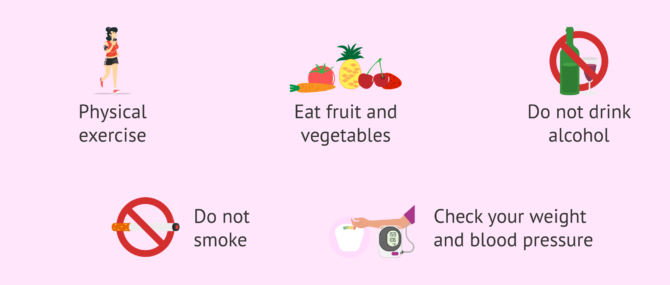
It is important to follow all the doctor's recommendations, control weight and blood pressure and go for routine check-ups.
What are the possible risks of having a pregnancy at age 40?
There are several pathologies that may appear more frequently as the mother's age increases, such as hypertension and diabetes, especially in women who are overweight or obese.
Furthermore, the rates of miscarriage and premature birth are also higher in mothers over 40 years of age.
As for pathologies such as Down syndrome, the risk at 30 years of age is one in 400 cases, at 40 years of age it is one in 100 and at 45 years of age it is one in 30 cases.

It is also more common to resort to cesarean delivery, since natural childbirth carries more risks of hemorrhage, tearing, uterine inertia and placental abruption.
Can you have a third baby at 40?
Yes, it's possible. But the pregnancy may not be similar to the previous pregnancies if the time gap between pregnancies is long. It's possible that the discomforts and symptoms you experience are worse, including nausea, gas, weight gain, etc., aside from all the risks that a pregnancy at 40 carries.
Also, a third pregnancy translates, in most cases, into taking care of a newborn along with the older siblings, if they are still children. This increases the level of fatigue and exhaustion for the woman in comparison with previous pregnancies.
Recommended reading
Some women decide to have children even later and start trying to conceive when they are in their 50s. Click here if you would like to read more: Can a Woman Get Pregnant at Age 50? – Chances & Risks.
If you are 40 or more and need help to have a baby, we recommend that you read the full list of fertility options available nowadays: What Are Assisted Reproduction Techniques? – Definition, Types & Costs.
We make a great effort to provide you with the highest quality information.
🙏 Please share this article if you liked it. 💜💜 You help us continue!
References
Gunilla Sydsjö, Malin Lindell Pettersson, Marie Bladh, Agneta Skoog Svanberg, Claudia Lampic, Elizabeth Nedstrand. Evaluation of risk factors' importance on adverse pregnancy and neonatal outcomes in women aged 40 years or older. BMC Pregnancy Childbirth. 2019 Mar 13;19(1):92 (View)
Penelope Strid, Margaret Christine Snead, Romeo R Galang, Connie L Bish, Sascha R Ellington. Fertility and contraception among women of reproductive age following a disaster: a scoping review. Reprod Health. 2022 Jun 23;19(1):147. doi: 10.1186/s12978-022-01436-4 (View)
Sauer M, Paulson R, Lobo R 1990 A preliminary report on oocyte donation extending reproductive potential to women over 40. New England Journal of Medicine 323, 1157–1160 (View)
Sociedad Española de Fertilidad. Registro Nacional de Actividad 2021-Registro SEF (View)
Syuichi Ooki. Maternal age and birth defects after the use of assisted reproductive technology in Japan, 2004-2010. Int J Womens Health. 2013;5:65-77. doi: 10.2147/IJWH.S32296. Epub 2013 Feb 18 (View)
FAQs from users: 'Which assisted reproductive treatment is best for a 40 year old woman?', 'Which fertility treatment is best for women over 40?', 'What are the chances of getting pregnant at 40 naturally?', 'What are the symptoms of pregnancy in your 40s?', 'How can I get pregnant at 40 fast?', 'Is it possible to undergo IVF from age 40 onwards?', 'What are the miscarriage rates with donor eggs?', 'What precautions should a pregnant woman in her 40s take?', 'How many eggs does a woman have at 40?', 'What are the possible risks of having a pregnancy at age 40?', 'What are the chances of getting pregnant after 40 with IVF?' and 'Can you have a third baby at 40?'.
Authors and contributors


More information about Michelle Lorraine Embleton
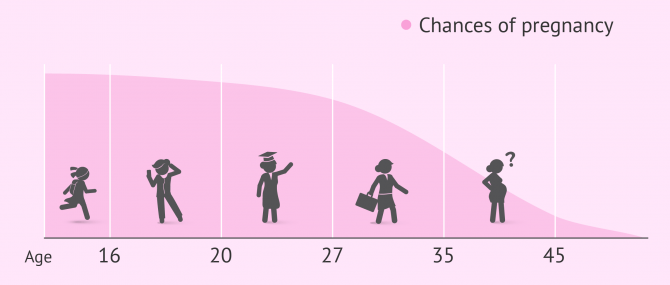
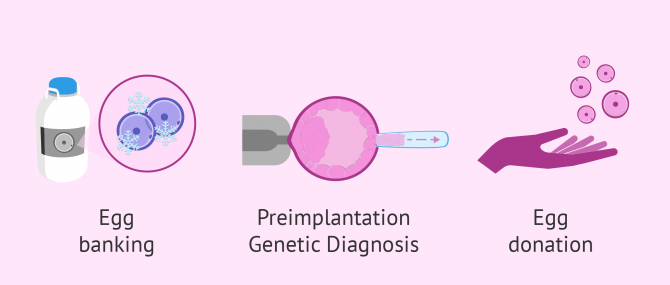
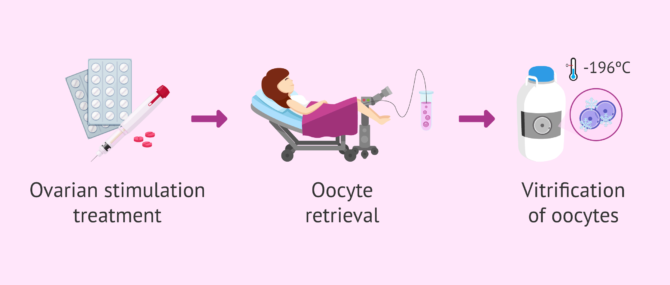
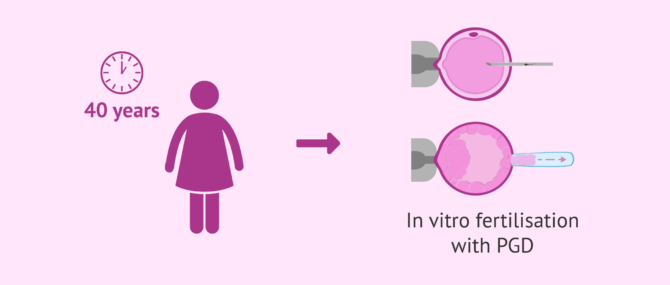

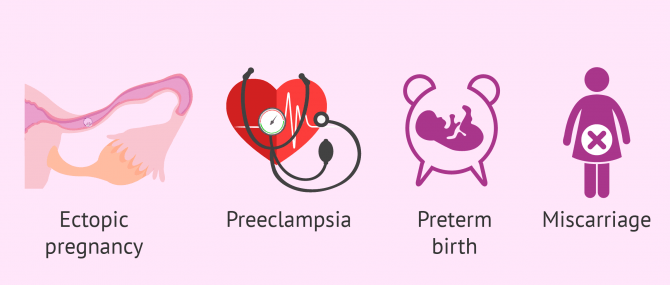





Hello. I am 42 and I just got pregnant naturally, after a failed attempt of IVF. Why could this be after all those years of trying?
Hi Janice
There are increasing anecdotal reports that people get pregnant naturally after failed IVF treatments and there are a number of ideas of why this could be the case.
For example, it may be due to stress. After failed IVF, although distressing, the couple could be more focused on their recovery and less focused on trying to get pregnant. Less obsessing over getting pregnant may reduce the stress levels around it and so it happens naturally.
It may also be the case that the drugs taken in ovarian stimulation have “woken up” the ovaries, increasing the chances of the release of good quality eggs for fertilization.
When TTC, naturally or with assisted reproduction, it is typical for the hopeful parents to start taking better care of themselves, with better nutirtion and lifestyle habit. This could also be an influencing factor.
Whatever the reason, the good news is that you are pregnant – congratulations!
I hope this helps answer your question, and all the best with your pregnancy.